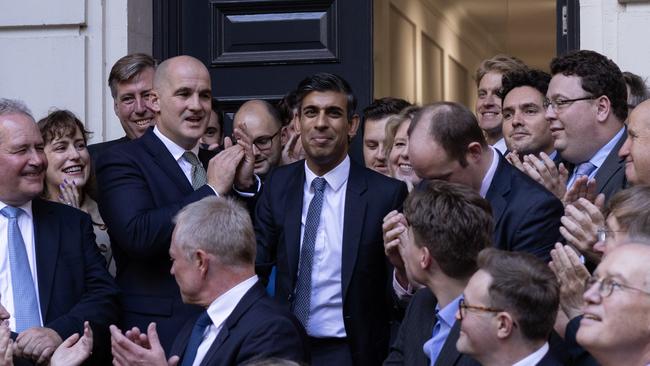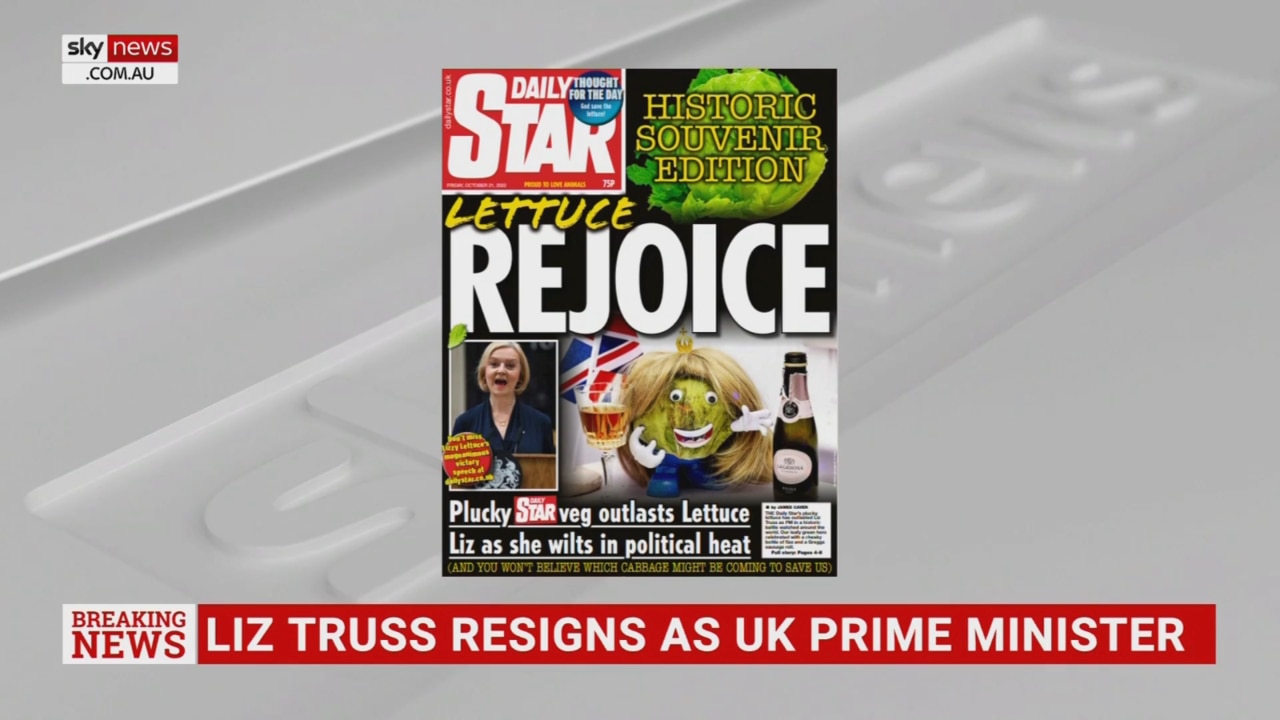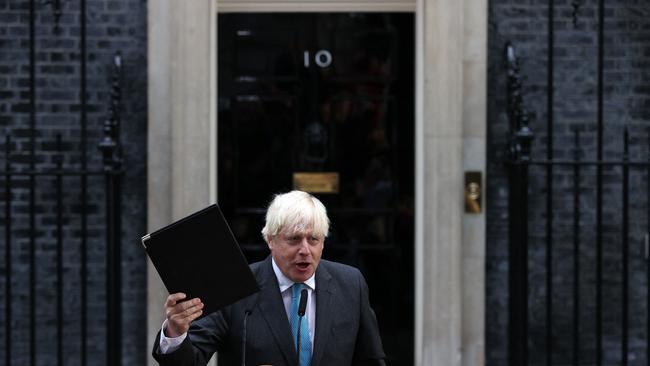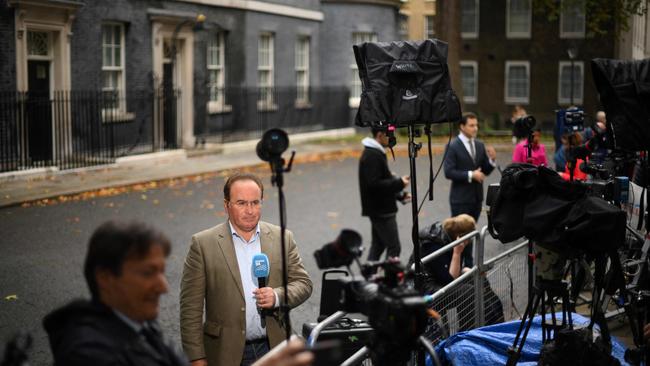
So the spectacle in London over the past few months summons bewilderment and demands an explanation. The party that won world wars and faced down revolutionary ideologies, the people who kept alive the flame of freedom in some of its darkest moments, has been transformed into a parodic model of misrule, a ballet of buffoonery, its so-called leaders performing a bad slapstick in which the characters are locked forever in a futile struggle to escape from a revolving door.
This descent may have reached its nadir last week with the tragicomic collapse of the government of the shortest-serving prime minister in the country’s history, a woman so manifestly out of her depth, a politician with ambition so far exceeding her meagre ability, that she couldn’t even outlast a lettuce.

It’s easy to laugh at Liz Truss, a name destined to be the answer to the trivia question everyone forgets. But she represents only the most extreme symptom of the underlying unseriousness that defines a once-great political institution.
How bad is it? A party that one month ago announced its commitment to restoring economic growth through deficit-risking tax cuts is now preparing to impose a new era of austerity with tens of billions of dollars worth of tax increases and deficit reductions.
Three months ago, Jeremy Hunt, a perennial also-ran in the party’s upper ranks, finished eighth out of eight candidates in the race to become prime minister. Now he is the man supposedly tasked with rescuing Britain from the costs of Truss’s failed fiscal experiment.
Then there was Boris Johnson. Deemed unfit for office and dumped three months ago by his fellow Conservative members of Parliament, he came close to being resurrected this past weekend. In the end he lost out to Rishi Sunak, the new prime minister, a rather staid former banker who makes up in accounting expertise what he lacks in Johnson’s charisma and Truss’s recklessness. Britain may now get a little stability and some fiscal prudence – long after the damage has been done.
How did this happen? There are proximate, local factors. Some observers are tempted to put it down to a pathology in which the combination of post-Brexit psychosis and post-pandemic anomie has sapped all reason and purpose from those who govern. But there are also some characteristics that resonate in American conservatism.
I have said this before, but part of the reason is a dizzying collapse in the quality of our leaders. Across the West, we are led by too many inferior people who shouldn’t be left in charge of a Lego set, let alone the entire edifice of national government. Governing has become a heavily performative exercise played increasingly by a cast of professional political figures who never made a payroll, donned a uniform or created anything other than a sharply worded press release. All this is exacerbated by the unseriousness of a media and political culture in which the demand for constant gratification is met by “owning” your opponent, always on the lookout to exploit some alleged grievance.

But there is one deeper, substantive problem that afflicts conservatives especially. It helps explain the chaos in Britain but also describes the developing debate in the US.
Having delivered Brexit by cleverly channelling the modern populist demand for more national self-determination, the Conservatives are split on how to make it work. One vision is of a dynamic neoliberal nirvana, “Singapore on Thames,” in which Britain regains its global competitiveness by cutting taxes, shrinking government, opening itself to immigration. This was the short-lived Truss experiment. It collapsed on collision with market reality, but it is also at odds with the sentiments of many Brexit and Conservative voters. These are working-class former Labour supporters who in their vision of an independent Britain seek the security of a strong state defined by a more powerful sense of community, in which the government provides a strong welfare safety net and public services.

There are strong echoes in US politics in the rise of a national populist conservatism backed by working-class voters who have been left behind. They too see in a stronger national identity an opportunity for a more cohesive community and are sceptical of free trade, immigration and tax cuts for businesses.
Britain’s attempt to reconcile these two strands has produced abject chaos – and the inevitability of a left-wing government. Even as they prepare to resume their place in power, Republicans should take heed.
The Wall Street Journal








It is hard to fathom right now but the British Conservative Party is the most successful political party in democratic history. It has been ideologically nimble enough to navigate two centuries of change and govern Britain for almost two-thirds of that time, but steadfast enough in defence of its core values that it can claim a unique status in the endeavour of preserving of Western civilisation, with leaders of statuesque authority – Robert Peel, Benjamin Disraeli, Winston Churchill, Margaret Thatcher – to bear witness to its historic greatness.